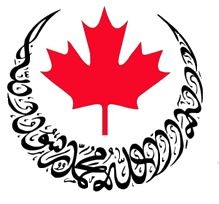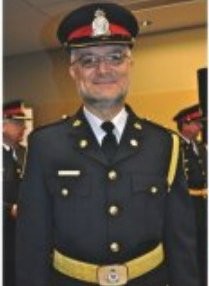by Dore Gold
Among the historical
events associated with "Lag Ba'omer," celebrated in the days ahead, is
the Second Jewish Revolt led by Bar Kochba which was a war of national
liberation against the Roman Empire. It mostly took place in Judea,
during the years 132 through 135, some eighty years after the
destruction of the Temple.
At the early stages of
the revolt, Bar Kochba's forces actually defeated whole Roman armies. A
Roman legion that was dispatched from Egypt to help was completely
annihilated by Jewish forces. Bar Kochba fought to liberate Jerusalem
and apparently extended his rule beyond Judea to much of what is today
the territory of Israel. Thousands of coins were issued by his
government celebrating the "Redemption of Israel."
In the modern period,
two schools of thought emerged with respect to his revolt. Israel's
first prime minister, David Ben-Gurion, and most of his generation, saw
in Bar Kochba a heroic leader who could be a source of inspiration for
the youth of Israel who were being asked in 1948 to fight for the
reestablishment of their homeland. On the other side of the political
spectrum, the Revisionists led by Zeev Jabotinsky named their youth
movement after Beitar, where Bar Kochba’s forces were finally defeated
by Rome.
Bar Kochba continued to
be an important symbol for Israel in the years after its independence.
As defense minister, Ben-Gurion authorized the IDF to assist Prof. Yigal
Yadin, the second IDF chief of staff, and his archaeological teams to
uncover artifacts from the Bar Kochba Revolt that were hidden in caves
in the Judean Desert. These included Bar Kochba’s written communications
with his forces and also religious items like tefillin used in daily
prayer. In 1982, Prime Minister Menachem Begin gave a eulogy at the
grave where the ancient bones of the last 25 survivors of the Bar Kochba
Revolt were buried with full military honors.
The second view of Bar
Kochba was represented by Yehoshafat Harkabi, a former head of military
intelligence. In the late 1970s he accused Bar Kochba and his supporters
of bringing national disaster upon the Jewish people by conducting a
war against all odds to defeat the Roman Empire and by relying upon an
"unrealistic assessment of the historical and political circumstances"
they faced.
There is no dispute
that Jewish losses after three years of fighting were staggering.
According to the Roman account by the historian Dio Cassius, written in
the third century, 985 Jewish settlements were destroyed by the end of
the war and 580,000 Jews were killed. After the revolt, Emperor Hadrian
(117-138) forbade Jews from even entering Jerusalem. The leading sage,
Rabbi Akiva, who hailed Bar Kochba as the Messiah, and other members of
the Sanhedrin were tortured and executed by the Romans at the end of the
revolt.
Harkabi influenced a
whole generation of intellectuals and politicians. Israel's former
foreign minister, Shlomo Ben Ami, who was known for his dovish positions
in Israeli-Palestinian negotiations, credits Harkabi with "the erosion
of old mythologies" that could change what he called Israel's "messianic
obsession" with the territories.
A prevalent opinion is
that if the Jews had been content with a mainly spiritual identity,
based on the example of Rabban Yohanan ben Zaccai, who re-built Jewish
life in Yavneh after the destruction of the Temple, the Romans would
have left them alone. But from the year 70, when the Temple was
destroyed, until 132, when the Bar Kochba Revolt began, there was
growing evidence of a renewed Roman enmity against the Jews,
particularly in Judea, but also in the communities of the Diaspora. The
Yavneh option did not appear to be any longer realistic to many at the
time. It was notable that the Jews were far more united behind Bar
Kochba in 132 than they were during the earlier revolt in 70.
Under the Emperor
Domitian (81-96), Roman armies hunted down any potential Jewish leaders
who were descended from the House of David. From 115 to 117, under the
Emperor Trajan (98-117), Roman forces massacred Jewish populations in
what is today Iraq as well as in Egypt, Cyrenaica (Libya), and Cyprus.
Learning the lessons of these wars in the Diaspora, the Jews in Judea
apparently began preparing for another round with Rome, by building
fortifications and escape routes to caves near the Dead Sea.
Fifteen years later,
Emperor Hadrian instituted a ban on circumcision. He also planned to
build a temple to the Roman god, Jupiter, on the ruins of the Temple.
Rome sought to crush the national will of the Jewish people by adopting
laws that were intended to destroy the ability of the Jewish people to
remain constituted as a nation. In fact, after the revolt, Hadrian
renamed Judea as Syria-Palestina, to erase the memory of the Jewish
connection to the land.
One of the mysteries of
the Bar Kochba Revolt was why the Roman Empire concentrated such a
massive military force to defeat what was essentially a guerilla army in
a backwater province like Judea. At the height of the war, Hadrian
dedicated no less than 12 legions to his campaign against Bar Kochba;
there were only 28 legions in the entire Roman Empire. During the
previous century, a major revolt in what is today Germany was vanquished
with just three Roman legions.
Hadrian appointed
Julius Severus, the commander of Roman forces in Britain, to take his
own legions to Judea along with units from the Danube provinces.
The reason for Rome
appearing to have decided that it needed to defeat Bar Kochba at all
costs may be linked to the Jewish struggle for freedom having much wider
implications. Dio Cassius, wrote that "many gentiles came to their
aid." The Jews in the Diaspora and some Samaritans, who in the past had a
hostile relationship with the Jews, also joined the rebellion. Dio
Cassius summarized the effects of the revolt, as follows: "the whole
earth, one might almost say, was being stirred over the matter." Clearly
from this perspective, had Bar Kochba succeeded, he could have brought
down the whole Roman Empire, whose vanquished peoples might have arisen
against Rome as well. Hence its determination to do anything possible to
defeat the Second Jewish Revolt.
So how should we relate
today to Bar Kochba? Should he remain as a legendary hero as he was
depicted by Israel’s founders? Prof. Yigal Yadin made the point that it
is hard for us today to judge the wisdom of those who launched a
guerilla war against Rome in 132. The main Roman historian Dio Cassius
lived more than a century later. There was no Josephus witnessing the
Bar Kochba Revolt and writing its history as it occurred the way there
was for the Great Revolt eighty years earlier.
Moreover, there are
serious dangers emanating from misusing the history of the Bar Kochba
Revolt, and its results, to analyze Israel's political options in modern
times. Had the Jewish leadership of the Yishuv in 1948 relied upon the
alternative interpretations of Bar Kochba as a guide, they might not
have declared Israel's independence, fearing the invasion of six Arab
armies (they probably would have invaded anyway, just to grab
territory). Also, Israel would not have launched a preemptive strike in
the 1967 Six-Day War when Egypt, Syria, Jordan and Iraq were massing
their armies along its borders.
Finally, acts of
heroism are not to be evaluated only by the immediate results they
obtain, but rather by the mark in history that they leave and the extent
to which they inspire future generations. If that were not the case,
then the world would have already forgotten the valor of the Spartans
who halted the Persian advance on Greece at Thermopylae, or the bravery
of the Americans at the Alamo, or even the Russians who lost nearly a
million soldiers holding back the Germans at Stalingrad. The fact of the
matter is that Bar Kochba ultimately won the war he launched nearly two
thousand years earlier, for the Jews returned to their land and
re-established Israel, partly inspired by his example, while the
tyrannical regime of the Roman Empire that he fought is no longer.
Dore Gold
Source: http://www.israelhayom.com/site/newsletter_opinion.php?id=4129
Copyright - Original materials copyright (c) by the authors.




 Canadians
are on their guard against the growing Islamist threat. After all, the
last month alone brought the Boston Marathon bombing, and arrests in
Canada of suspected Iranian-linked al-Qaeda bomb-plotters targeting
Canada-US passenger train routes. Add to that, repeated stories of
Islamist radicalism in Canadian neighborhoods and young Canadian Muslim
terrorists abroad.
Canadians
are on their guard against the growing Islamist threat. After all, the
last month alone brought the Boston Marathon bombing, and arrests in
Canada of suspected Iranian-linked al-Qaeda bomb-plotters targeting
Canada-US passenger train routes. Add to that, repeated stories of
Islamist radicalism in Canadian neighborhoods and young Canadian Muslim
terrorists abroad. Despite
all this, El-Kassem is making a name for himself in the more gullible
reaches of some interfaith and outreach fringes, and even policing. The
apparently uninformed London police chief, Bradley S. Duncan, rewarded
the imam with – astonishingly – an appointment as police chaplain.
Despite
all this, El-Kassem is making a name for himself in the more gullible
reaches of some interfaith and outreach fringes, and even policing. The
apparently uninformed London police chief, Bradley S. Duncan, rewarded
the imam with – astonishingly – an appointment as police chaplain.